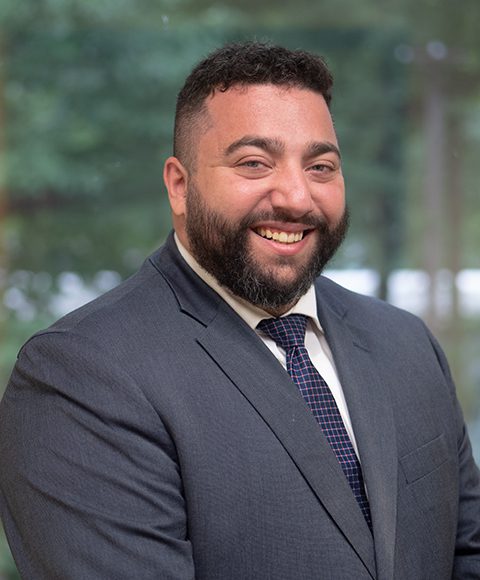The Semester has Already Started – Can I Still Get Accommodations at College?

Classes have already started, but you need accommodations and you haven’t applied for them. Maybe you didn’t know you qualified for accommodations, or you’re newly diagnosed. Or it turns out your college needs a neuropsych eval before providing accommodations for ADHD, autism, or PTSD even though your high school accepted a family doctor’s diagnosis. Maybe you knew you qualified, but didn’t realize you’d need to use accommodations until college’s tougher coursework combined with other executive function burdens—a whole new routine, managing your own time, monitoring your own medications and appointments, finances, etc.—became too much to handle without support. Here is what you need to know about pursuing testing or any other accommodations after the semester has already begun.
Is it too late to get testing accommodations?
No, it is not too late to apply for accommodations for any disability that impacts your learning. If you are a college student with a disability recognized by the ADA that impacts your college experience, you can request accommodations at any point in the semester. The ADA defines disability as a physical or mental impairment that significantly impacts one or more major life activities, including thinking, memory, concentrating, learning, and communicating. ADHD, autism, TBI, PTSD, and major depressive disorder all qualify as disabilities.
Any school that receives federal funding, private or public, is legally obligated to accommodate students with disabilities. If students at your school can access federal financial aid, that school is beholden to the Rehabilitation Act Section 504, Subpart E. They cannot deny you equal access to educational opportunities because of the date.
However, these accommodations are not retroactive. Meaning, if you realize you need accommodations only after failing your midterm, you cannot get accommodations and retake the midterm with accommodations. It may be possible to negotiate something with your professor. But this would be a conversation any student, with or without a disability, might have about retaking an exam. The professor is not required to allow you to retake the exam with accommodations, but that also does not mean that they won’t.
It is not unheard of to see a spike in students seeking disability accommodations after midterms. Many didn’t think they would need them only to realize there is no sense in not getting whatever support they can to level the playing field. It isn’t just possible to get accommodations partway through college: it’s commonplace.
If I didn’t get accommodations in high school, can I get them in college?
Yes; if you didn’t receive disability accommodations in high school, you can receive accommodations in college. Whether it’s because you weren’t diagnosed with ADHD yet, or you just didn’t need or want to use accommodations. It is common for students not to even realize they have ADHD until starting college.
From an administrative standpoint, there is no necessary connection between high school and college accommodations. Accommodations at the K-12 and post-secondary level are governed by different laws. In high school, your disability accommodations were covered under the Individuals with Disabilities Education Act (IDEA) and Section 504 of The Rehabilitation Act, Subpart D. If you had an Individualized Education Program (IEP) or 504 Plan in high school, this will not transfer to college.
Similarly, if you start at one college—say, a community college—and transfer to another school, your disability accommodations don’t necessarily follow you. Even if you are staying within the same larger system, say SUNY or CUNY, you must be proactive about contacting the requisite office at your new school.
I think I have ADHD but haven’t been diagnosed yet. How do I get accommodations?
IDEA federally obligates K-12 schools to identify students with disabilities and cover the costs of testing and diagnosis. Colleges and Universities are under no such obligation. You, the student, are responsible for identifying yourself as a person with a disability, and for your own diagnosis.
Your school may have particular standards for what medical documentation they will or will not accept as proof of disability before providing you with accommodations. Some colleges might accept a primary care physician or psychologist’s ADHD diagnosis, others may require a neuropsychiatric evaluation. Neuropsych evals are often the gold standard of documentation for neurodivergence like ADHD. But they can be difficult to come by. Contact your school’s DSS office and ask what documentation they require before going through the process.
My school won’t accommodate my disability without a neuropsych evaluation, what can I do?
If your school is demanding a neuropsych eval before they will give you accommodations, and you can’t access a neuropsychologist to evaluate you, then you are unable to access equal education opportunities. Every school should have a grievance procedure to contest a decision to deny accessibility. Connect with the ADA coordinator to discuss your concerns, or any other campus groups or representatives who advocate for students with disabilities.
If the campus resources dedicated to students with disabilities can’t help you, there are attorneys dedicated to representing college students in need of disability accommodations. College is a huge investment in your time and money. If you need accommodations to succeed and you aren’t getting them, consulting a higher education attorney may be a wise move.


























